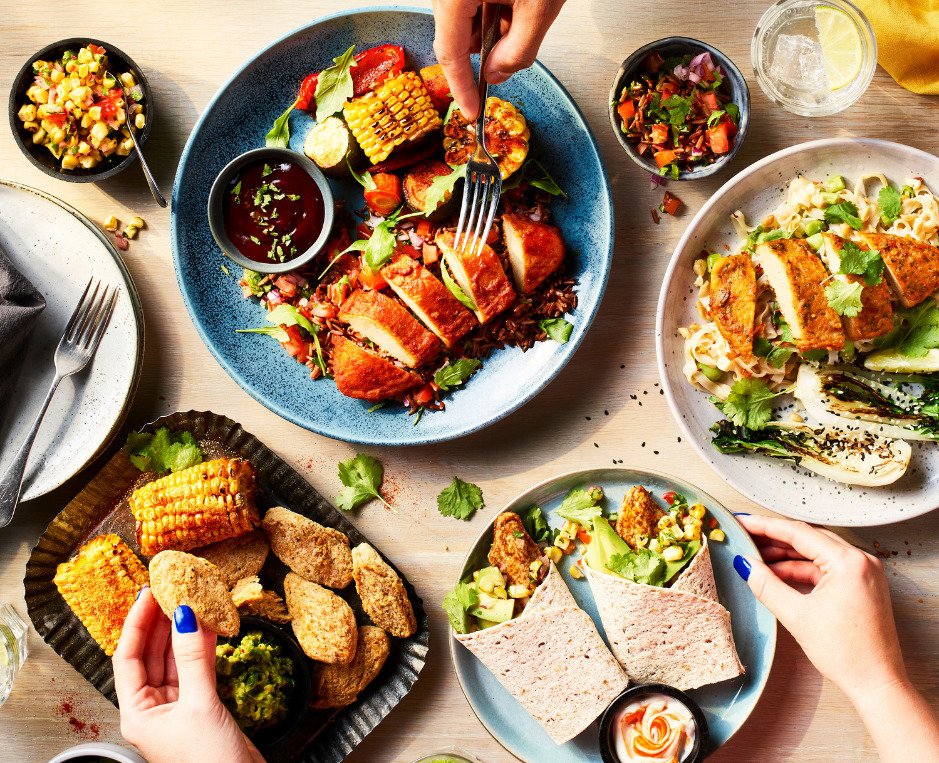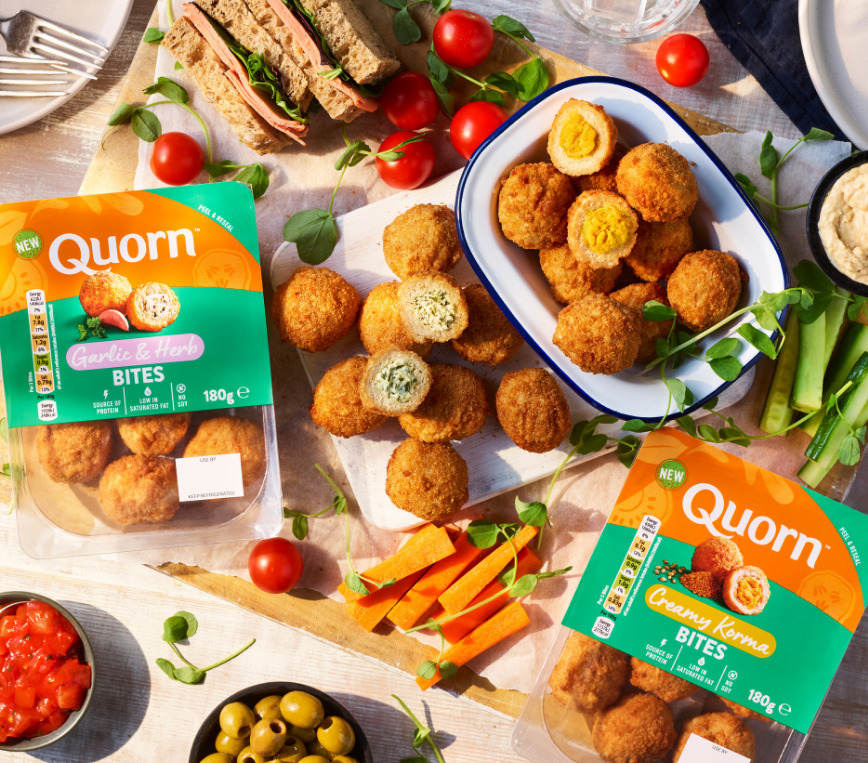5 Mins Read
Marlow Foods, the Monde Nissin division that makes meatless brands Quorn and Cauldron, has announced a loss of £15.3M in its yearly accounts, owing to cost hikes, stagnating sales and post-pandemic pressures.
Marlow Foods is the latest company to be hit by a financially struggling meat alternatives sector, with retail sales of its Quorn mycoprotein-based products dipping by 4.3% to £192.9M last year across its global operations. This was partly due to post-pandemic pressures, as retail purchases rose in the second half of 2022, as well as inflation caused by the war in Ukraine, which the company says impacted its business significantly. Rising energy costs, as well as price hikes on ingredients like glucose and egg albumen, further impacted its costs.
While a 43.7% hike in foodservice sales to £28.3M and an 81.1% rise in the fast-food sector to £6.7M helped its total top-line revenue post a minor 1.3% increase to £227.9m, this growth is well behind current inflation rates, suggesting that the volume of products sold has fallen.
According to Nielsen IQ data published by the Grocer, the retail volume of Quorn and Cauldron products dipped by 10.9% and 22.6%, respectively – despite Marlow Foods growing its market share marginally by 1.5% to 31.7%, through new product launches, selling its meatless offerings at KFC across Europe, and adding 21,000 distribution points. The news comes months after its Philippines-based owner Monde Nissin – which acquired Quorn in 2015 – set up a B2B ingredients arm to sell to European manufacturers.
Marlow Foods recorded an operating loss of £12.9M last year – compared to £8.7M in profit in 2021 – with inflation squeezing its margins, with a full business review, the closure of part of a manufacturing plant, and one-off redundancies hitting it with £12.1M in costs. Further financing costs of £4.5M from interest on borrowings – up from £3.6M in 2021 – pushed its pre-tax loss to £15.5M, against profits of £7.4M.
“2022 was a year where we saw huge changes in consumer behaviour and turbulence in the global economy, but we were pleased to deliver sales growth and to consolidate our leadership in UK retail,” said Quorn CEO Marco Bertacca. “We always seek to insulate our consumers from the impact of higher costs and to protect the affordability of our food where possible, but these dynamics pushed our business into a loss for the year.”
US restructuring reflects wider trends

Marlow Foods has depreciated the value of its £17.7M investment in the US to zero, months after Monde Nissin restructured its meat-free operations in the US by taking out a non-cash impairment charge of $370M and shifting spending away from Quorn. “The situation in the US has been very disappointing,” said Monde Nissin CEO Henry Soesanto earlier this year. “The plan that we had for the US was and it has been to really over-invest.”
It reflects the challenges faced by plant-based meat in the country. In August, plant-based giant Beyond Meat reported a 30% sales drop with a net loss of $53.3M, cutting its full-year revenue forecast and walking back its goal of becoming cashflow-positive in the second half of this year.
It followed job cuts by the company (affecting 200 employees) last year, with similar layoffs seen at fellow vegan meat companies Impossible Foods, Eat Just and Meati. Retail sales of meat alternatives in the US fell by 12.6% to $106.8M in the five weeks to July 2, 2023, with units down by 19.8% year-on-year. And for the year to July 2, 2023, sales declined by 7.3% year-on-year, while units saw a 15.6% drop. These figures coincide with a Gallup poll that found that the number of American vegans has hit a 10-year low.
Meanwhile, a report by the Good Food Institute (GFI) revealed that retail sales of plant-based meat flatlined in the US in 2022, but foodservice sales reached an all-time high of $730M – reflecting Quorn’s sales trends last year.
Plant-based meat’s challenges in the UK

The financial strain has seen many plant-based meat brands cease operations, file for bankruptcy, and go into receivership. In the UK itself, Meatless Farm came close to the brink before being rescued by vegan chicken maker VFC, and ingredients manufacturer Plant & Bean – a Quorn supplier – fell into administration.
While the UK is Europe’s second-largest vegan market – with Brits spending £964M on plant-based meat and dairy last year – sales have stagnated and total investment in plant-based protein R&D has been overtaken by cultivated meat in the last decade. According to the GFI Europe, plant-based sales declined by 3% between 2021-22 in the UK, with plant-based meat sales sliding by 8% in the same period.
The UK has seen many brands pull their products from stores, including Coca-Cola-owned Innocent Drinks discontinuing a few of its smoothies, Heck reducing its meatless range from 10 products to just two, Nestlé dropping its Garden Gourmet and Wunda brands, and Oatly withdrawing its entire ice cream range. Late last year, sandwich chain Pret A Manger announced it was closing down most of its Veggie Pret stores..
GFI Europe says the UK must invest £380M in its alt-protein sector if it is to keep up with other countries and avoid losing startups to nations with better regulatory frameworks. Another report by Green Alliance found that, with the right combination of targeted investments and regulation, the UK alt-protein industry could be worth £6.8B annually and create 25,000 jobs by 2035.
Earlier this month, it was reported that the UK could be set to fast-track regulatory approval of cultivated meat with a bilateral deal with Israel. Israeli producer Aleph Farms filed the first such application in the UK in August.
As for plant-based meat, GFI Europe says much more can be done. Its UK policy manager, Linus Pardoe, told Green Queen in August: “While the UK has many of the right ingredients to play a key role in advancing research to make plant-based foods tastier, healthier and more affordable for consumers, most of the expertise in important fields like crop breeding and food science tends to be funded in a way that focuses on other, more established areas of research.”



